101.4 Contents
Preface xix

Chapter 1 Psychology: The Evolution of a Science 1
THE REAL WORLD The Perils of Procrastination 4
Psychology’s Roots: The Path to a Science of Mind 5
Psychology’s Ancestors: The Great Philosophers 5
From the Brain to the Mind: The French Connection 6
Structuralism: Applying Methods from Physiology to Psychology 7
Titchener Brings Structuralism to the United States 9
James and the Functional Approach 10
THE REAL WORLD Improving Study Skills 10
The Development of Clinical Psychology 13
The Path to Freud and Psychoanalytic Theory 13
Influence of Psychoanalysis and the Humanistic Response 15
The Search for Objective Measurement: Behaviorism Takes Center Stage 16
Watson and the Emergence of Behaviorism 16
OTHER VOICES Is Psychology a Science? 17
B. F. Skinner and the Development of Behaviorism 18
Return of the Mind: Psychology Expands 20
The Pioneers of Cognitive Psychology 20
Technology and the Development of Cognitive Psychology 22
The Brain Meets the Mind: The Rise of Cognitive Neuroscience 24
The Adaptive Mind: The Emergence of Evolutionary Psychology 25
Beyond the Individual: Social and Cultural Perspectives 27
The Development of Social Psychology 27
The Emergence of Cultural Psychology 28
CULTURE & COMMUNITY Analytic and Holistic Styles in Western and Eastern Cultures 30
The Profession of Psychology: Past and Present 31
Psychologists Band Together: The American Psychological Association 31
What Psychologists Do: Research Careers 32
HOT SCIENCE Psychology as a Hub Science 34
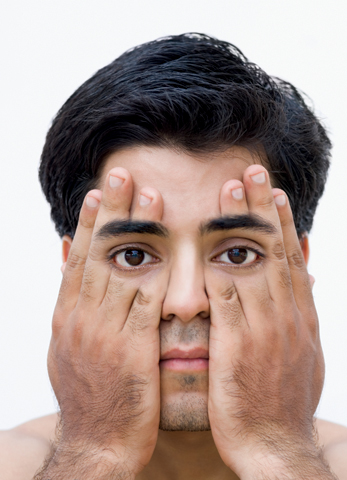
Chapter 2 Methods in Psychology 39
Empiricism: How to Know Stuff 40
The Scientific Method 40
The Art of Looking 42
Observation: Discovering What People Do 43
Measurement 43
CULTURE & COMMUNITY Best Place to Fall on Your Face 45
Descriptions 47
Explanation: Discovering Why People Do What They Do 51
Correlation 51
Causation 54
THE REAL WORLD Oddsly Enough 61
Drawing Conclusions 62
HOT SCIENCE Do Violent Movies Make Peaceful Streets? 64
Thinking Critically about Evidence 66
The Ethics of Science: First, Do No Harm 70
Respecting People 70
Respecting Animals 72
Respecting Truth 73
OTHER VOICES Can We Afford Science? 75
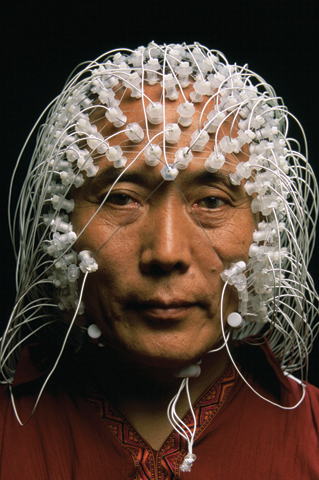
Chapter 3 neuroscience and Behavior 79
Neurons: The Origin of Behavior 80
Components of the Neuron 80
Major Types of Neurons 82
Neurons Specialized by Location 83
The Electrochemical Actions of Neurons: Information Processing 84
Electric Signaling: Conducting Information within a Neuron 84
Chemical Signaling: Transmission between Neurons 87
The Organization of the Nervous System 92
Divisions of the Nervous System 92
Components of the Central Nervous System 94
Structure of the Brain 95
The Hindbrain 96
The Midbrain 96
The Forebrain 97
Brain Plasticity 103
THE REAL WORLD Brain Plasticity and Sensations in Phantom Limbs 104
The Development and Evolution of Nervous Systems 106
Prenatal Development of the Central Nervous System 106
Evolutionary Development of the Central Nervous System 107
Genes, Epigenetics, and the Environment 108
HOT SCIENCE Epigenetics and the Persisting Effects of Early Experiences 112
Investigating the Brain 114
Studying the Damaged Brain 114
Studying the Brain’s Electrical Activity 118
Using Brain Imaging to Study Structure and to Watch the Brain in Action 119
THE REAL WORLD Brain Death and the Vegetative State 123
OTHER VOICES Neuromyths 124
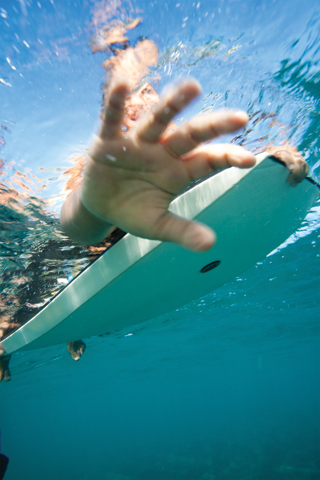
Chapter 4 Sensation and Perception 129
Sensation and Perception Are Distinct Activities 130
Psychophysics 131
Measuring Thresholds 132
Signal Detection 133
THE REAL WORLD Multitasking 135
Sensory Adaptation 135
Vision I: How the Eyes and the Brain Convert Light Waves to Neural Signals…. 136
Sensing Light 137
Perceiving Color 140
The Visual Brain 142
Vision II: Recognizing What We Perceive 145
Attention: The “Glue” That Binds Individual Features into a Whole 145
Recognizing Objects by Sight 147
Perceiving Depth and Size 150
Perceiving Motion and Change 153
CULTURE & COMMUNITY Does Culture Influence Change Blindness? 156
Audition: More Than Meets the Ear 157
Sensing Sound 157
The Human Ear 158
Perceiving Pitch 160
Localizing Sound Sources 161
Hearing Loss 161
THE REAL WORLD Music Training: Worth the Time 162
The Body Senses: More Than Skin Deep 163
Touch 163
Pain 164
Body Position, Movement, and Balance 166
The Chemical Senses: Adding Flavor 167
Smell 167
HOT SCIENCE Taste: From the Top Down 169
Taste 170
OTHER VOICES Hallucinations and the Visual System 173
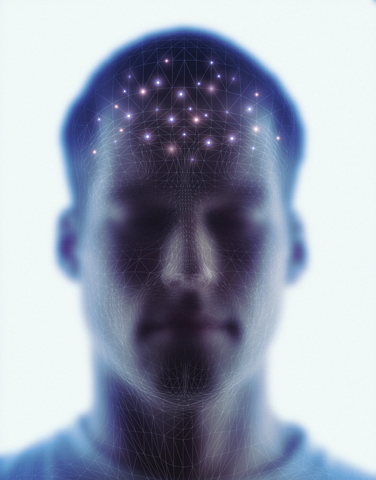
Chapter 5 Consciousness 177
Conscious and Unconscious: The Mind’s Eye, Open and Closed 178
The Mysteries of Consciousness 178
The Nature of Consciousness 181
HOT SCIENCE The Mind Wanders 185
The Unconscious Mind 189
Sleep and Dreaming: Good Night, Mind 193
Sleep 193
Dreams 199
CULTURE & COMMUNITY What Do Dreams Mean to Us around the World? 201
Drugs and Consciousness: Artificial Inspiration 204
Drug Use and Abuse 204
Types of Psychoactive Drugs 207
THE REAL WORLD Drugs and the Regulation of Consciousness 212
Hypnosis: Open to Suggestion 214
Induction and Susceptibility 214
Hypnotic Effects 214
OTHER VOICES A Judge’s Plea for Pot 217
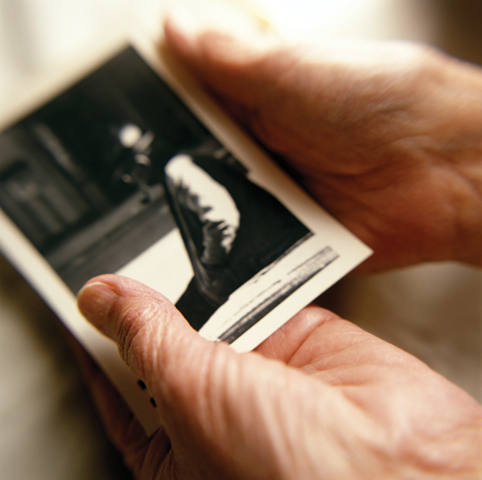
Chapter 6 Memory 221
Encoding: Transforming Perceptions Into Memories 223
Semantic Encoding 223
Visual Imagery Encoding 224
Organizational Encoding 225
Encoding of Survival-
Storage: Maintaining Memories over Time 228
Sensory Storage 228
Short-
Long-
HOT SCIENCE Sleep on It 233
Memories, Neurons, and Synapses 234
Retrieval: Bringing Memories to Mind 236
Retrieval Cues: Reinstating the Past 236
Consequences of Retrieval 237
Separating the Components of Retrieval 239
CULTURE & COMMUNITY Does Culture Affect Childhood Amnesia? 240
Multiple Forms of Memory: How the Past Returns 241
Explicit and Implicit Memory 242
Semantic and Episodic Memory 244
THE REAL WORLD Is Google Hurting our Memories? 248
Memory Failures: The Seven Sins of Memory 249
1. Transience 249
2. Absentmindedness 250
3. Blocking 252
4. Memory Misattribution 252
5. Suggestibility 255
6. Bias 256
7. Persistence 257
Are the Seven Sins Vices or Virtues? 259
OTHER VOICES Early Memories 261
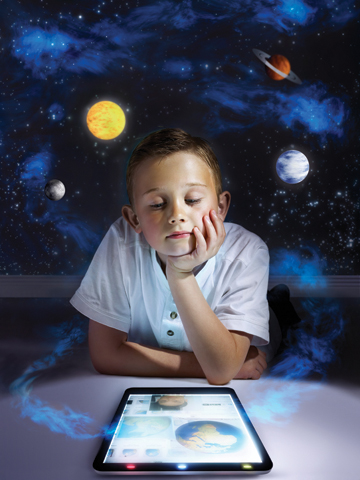
Chapter 7 Learning 265
Classical Conditioning: One Thing Leads to Another 267
The Development of Classical Conditioning: Pavlov’s Experiments 267
The Basic Principles of Classical Conditioning 268
THE REAL WORLD Understanding Drug Overdoses 270
Conditioned Emotional Responses: The Case of Little Albert 272
A Deeper Understanding of Classical Conditioning 273
Operant Conditioning: Reinforcements from the Environment 277
The Development of Operant Conditioning: The Law of Effect 277
B. F. Skinner: The Role of Reinforcement and Punishment 278
CULTURE & COMMUNITY Are There Cultural Differences in Reinforcers? 281
The Basic Principles of Operant Conditioning 282
A Deeper Understanding of Operant Conditioning 288
HOT SCIENCE Dopamine and Reward Learning in Parkinson’s Disease 292
Observational Learning: Look at Me 295
Observational Learning in Humans 295
Observational Learning in Animals 297
Neural Elements of Observational Learning 299
Implicit Learning: Under the Wires 300
Cognitive Approaches to Implicit Learning 301
Implicit and Explicit Learning Use Distinct Neural Pathways 303
Learning in the Classroom 304
Techniques for Learning 304
Testing Aids Attention 306
Control of Learning 307
OTHER VOICES Online Learning 308

Chapter 8 Emotion and Motivation 313
Emotional Experience: The Feeling Machine 314
What Is Emotion? 314
The Emotional Body 316
The Emotional Brain 319
The Regulation of Emotion 320
Emotional Communication: Msgs w/o Wrds 322
Communicative Expression 323
HOT SCIENCE The Body of Evidence 325
Deceptive Expression 326
CULTURE & COMMUNITY Is It What You Say or How You Say It? 329
Motivation: Getting Moved 330
The Function of Emotion 330
Instincts and Drives 323
What the Body Wants 333
THE REAL WORLD Jeet Jet? 337
OTHER VOICES Fat and Happy 339
What the Mind Wants 342
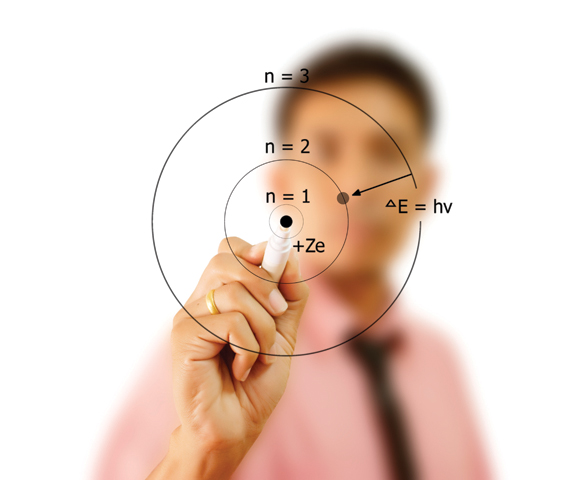
Chapter 9 Language and Thought 351
Language and Communication: From Rules to Meaning 352
The Complex Structure of Human Language 353
Language Development 355
Theories of Language Development 359
Language Development and the Brain 362
Broca’s Area and Wernicke’s Area of the Brain 362
Involvement of the Right Cerebral Hemisphere 363
Bilingualism and the Brain 363
OTHER VOICES Americans’ Future Has to Be Bilingual 364
Can Other Species Learn Human Language? 365
Language and Thought: How Are They Related? 367
Language and Color Processing 367
Language and the Concept of Time 368
Concepts and Categories: How We Think 369
Psychological Theories of Concepts and Categories 369
Concepts, Categories, and the Brain 371
Decision Making: Rational and Otherwise 374
The Rational Ideal 374
The Irrational Reality 374
CULTURE & COMMUNITY Does Culture Influence Optimism Bias? 378
Why Do We Make Decision-
Decision Making and the Brain 380
Problem Solving: Working It Out 382
Means—
Analogical Problem Solving 383
Creativity and Insight 384
HOT SCIENCE Sudden Insight and the Brain 386
Transforming Information: How We Reach Conclusions 388
Practical, Theoretical, and Syllogistic Reasoning 388
THE REAL WORLD From Zippers to Political Extremism: An Illusion of Understanding 390
Reasoning and the Brain 391

Chapter 10 Intelligence 395
How Can Intelligence Be Measured? 396
The Intelligence Quotient 397
The Intelligence Test 398
THE REAL WORLD Look Smart 400
What Is Intelligence? 401
A Hierarchy of Abilities 401
The Middle-
Where Does Intelligence Come From? 407
Genetic Influences on Intelligence 407
Environmental Influences on Intelligence 411
HOT SCIENCE Dumb and Dumber? 414
Genes and Environments 415
Who Is Most Intelligent? 416
Individual Differences in Intelligence 416
Group Differences in Intelligence 417
Improving Intelligence 420
OTHER VOICES How Science Can Build a Better You 421
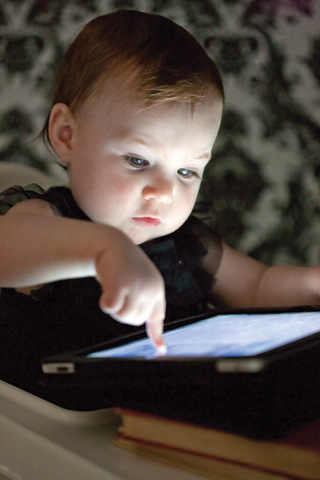
Chapter 11 Development 425
Prenatality: A Womb with a View 426
Prenatal Development 427
Prenatal Environment 428
OTHER VOICES Men, Who Needs Them? 429
Infancy and Childhood: Becoming a Person 431
Perceptual and Motor Development 431
Cognitive Development 433
HOT SCIENCE A Statistician in the Crib 435
THE REAL WORLD Walk This Way 442
Social Development 442
Moral Development 446
Adolescence: Minding the Gap 451
The Protraction of Adolescence 453
Sexuality 455
Parents and Peers 458
Adulthood: Change We Can’t Believe In 460
Changing Abilities 460
HOT SCIENCE The End of History Illusion 460
Changing Goals 463
Changing Roles 465
OTHER VOICES You Are Going to Die 467
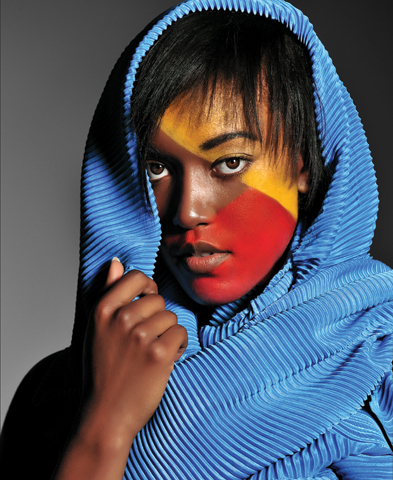
Chapter 12 Personality 471
Personality: What It Is and How It Is Measured 472
Describing and Explaining Personality 472
Measuring Personality 473
The Trait Approach: Identifying Patterns of Behavior 476
Traits as Behavioral Dispositions and Motives 476
The Search for Core Traits 477
HOT SCIENCE Personality on the Surface 479
Traits as Biological Building Blocks 480
THE REAL WORLD Are There “Male” and “Female” Personalities? 481
The Psychodynamic Approach: Forces That Lie beneath Awareness 484
The Structure of the Mind: Id, Ego, and Superego 485
Psychosexual Stages and the Development of Personality 487
The Humanistic-
Human Needs and Self-
Personality as Existence 489
The Social-
Consistency of Personality across Situations 491
Personal Constructs 491
CULTURE & COMMUNITY Does Your Personality Change According to which Language You’re Speaking? 492
Personal Goals and Expectancies 493
The Self: Personality in the Mirror 494
Self-
Self-
OTHER VOICES Does the Study of Personality Lack … Personality? 503
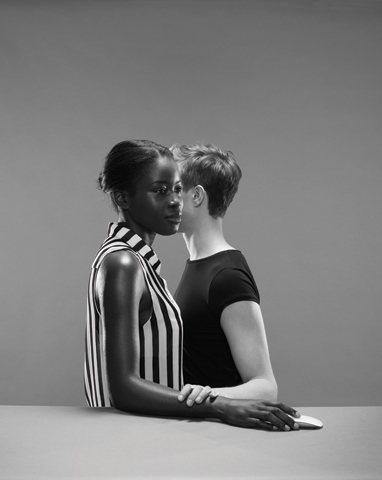
Chapter 13 Social Psychology 507
Social Behavior: Interacting with People 508
Survival: The Struggle for Resources 508
HOT SCIENCE Mouse Over 516
Reproduction: The Quest for Immortality 517
THE REAL WORLD Making the Move 519
Divorce: When the Costs Outweigh the Benefits 525
Social Influence: Controlling People 526
The Hedonic Motive: Pleasure Is Better Than Pain 527
CULTURE & COMMUNITY Free Parking 528
The Approval Motive: Acceptance Is Better Than Rejection 528
OTHER VOICES 91% of All Students Read This Box and Love It 531
The Accuracy Motive: Right Is Better Than Wrong 533
Social Cognition: Understanding People 537
HOT SCIENCE The Wedding Planner 538
Stereotyping: Drawing Inferences from Categories 538
Attribution: Drawing Inferences from Actions 543
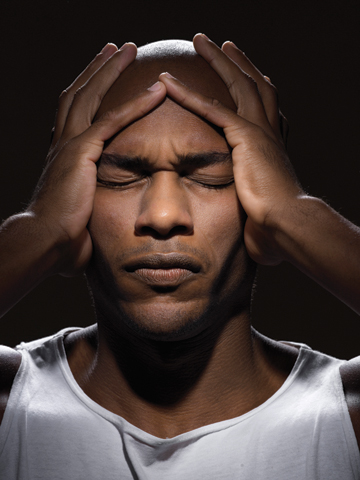
Chapter 14 Stress and Health 549
Sources of Stress: What Gets to You 550
Stressful Events 550
Chronic Stressors 551
HOT SCIENCE Can Discrimination Cause Stress and Illness? 552
Perceived Control over Stressful Events 553
Stress Reactions: All Shook Up 553
Physical Reactions 554
Psychological Reactions 558
Stress Management: Dealing with It 561
Mind Management 561
Body Management 563
Situation Management 565
CULTURE & COMMUNITY Land of the Free, Home of the … Stressed? 566
The Psychology of Illness: Mind over Matter 568
Psychological Effects of Illness 569
Recognizing Illness and Seeking Treatment 569
THE REAL WORLD This Is Your Brain on Placebos 571
Somatic Symptom Disorders 572
On Being a Patient 572
Patient—
The Psychology of Health: Feeling Good 574
Personality and Health 574
Health-
OTHER VOICES Freedom to Be Unhealthy? 579
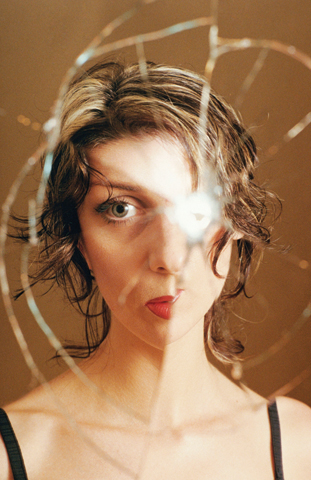
Chapter 15 Psychological Disorders 583
Defining Mental Disorders: What Is Abnormal? 584
Conceptualizing Mental Disorders 585
Classifying Mental Disorders: The DSM 586
Causation of Disorders 587
CULTURE & COMMUNITY What Do Mental Disorders Look Like in Different Parts of the World? 589
A New Approach to Understanding Mental Disorders: RDoC 590
THE REAL WORLD How Are Mental Disorders Defined and Diagnosed? 592
Dangers of Labeling 592
Anxiety Disorders: When Fears Take Over 593
Phobic Disorders 594
Panic Disorder 595
Generalized Anxiety Disorder 596
Obsessive-
Posttraumatic Stress Disorder: Troubles after a Trauma 599
Depressive and Bipolar Disorders: At the Mercy of Emotions 601
Depressive Disorders 601
Bipolar Disorder 604
Schizophrenia and Other Psychotic Disorders: Losing the Grasp on Reality 607
Symptoms and Types of Schizophrenia 607
Biological Factors 609
Psychological Factors 611
OTHER VOICES Successful and Schizophrenic 613
Disorders of Childhood and Adolescence 614
Autism Spectrum Disorder 614
HOT SCIENCE Optimal Outcome in Autism Spectrum Disorder 615
Attention-
Conduct Disorder 616
Personality Disorders: Going to Extremes 618
Types of Personality Disorders 618
Antisocial Personality Disorder 619
Self-
Suicidal Behavior 621
Nonsuicidal Self-

Chapter 16 Treatment of Psychological Disorders 627
Treatment: Getting Help to Those Who Need It 628
Why Many People Fail to Seek Treatment 629
THE REAL WORLD Types of Psychotherapists 630
Approaches to Treatment 631
CULTURE & COMMUNITY Treatment of Psychological Disorders around the World 632
Psychological Treatments: Healing the Mind through Interaction 633
Psychodynamic Therapy 633
Humanistic and Existential Therapies 636
Behavioral and Cognitive Therapies 637
HOT SCIENCE “Rebooting” Psychological Treatment 642
Group Treatments: Healing Multiple Minds at the Same Time 643
Medical and Biological Treatments: Healing the Mind by Physically Altering the Brain 646
Antipsychotic Medications 646
THE REAL WORLD Treating Severe Mental Disorders 647
Antianxiety Medications 649
Antidepressants and Mood Stabilizers 649
Herbal and Natural Products 651
Combining Medication and Psychotherapy 652
OTHER VOICES Diagnosis: Human 653
Biological Treatments Beyond Medication 654
Treatment Effectiveness: For Better or for Worse 656
Treatment Illusions 657
Treatment Studies 658
Which Treatments Work? 659
Glossary G-
References R-
Name Index NI-
Subject Index SI-